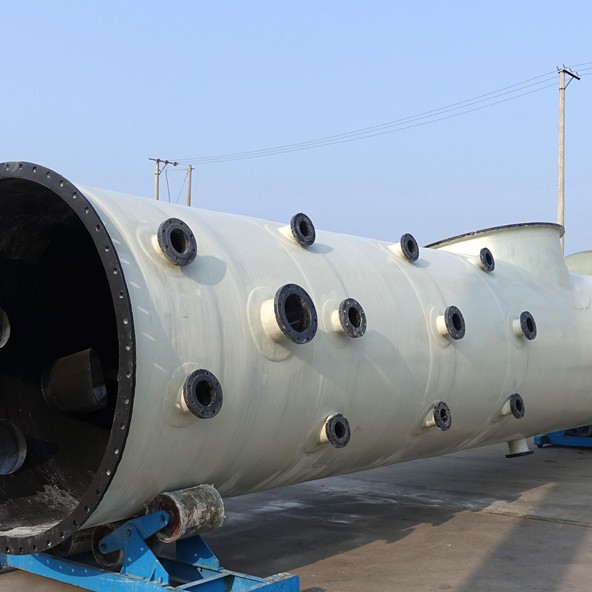
-
 Afrikaans
Afrikaans -
 Albanian
Albanian -
 Amharic
Amharic -
 Arabic
Arabic -
 Armenian
Armenian -
 Azerbaijani
Azerbaijani -
 Basque
Basque -
 Belarusian
Belarusian -
 Bengali
Bengali -
 Bosnian
Bosnian -
 Bulgarian
Bulgarian -
 Catalan
Catalan -
 Cebuano
Cebuano -
 China
China -
 China (Taiwan)
China (Taiwan) -
 Corsican
Corsican -
 Croatian
Croatian -
 Czech
Czech -
 Danish
Danish -
 Dutch
Dutch -
 English
English -
 Esperanto
Esperanto -
 Estonian
Estonian -
 Finnish
Finnish -
 French
French -
 Frisian
Frisian -
 Galician
Galician -
 Georgian
Georgian -
 German
German -
 Greek
Greek -
 Gujarati
Gujarati -
 Haitian Creole
Haitian Creole -
 hausa
hausa -
 hawaiian
hawaiian -
 Hebrew
Hebrew -
 Hindi
Hindi -
 Miao
Miao -
 Hungarian
Hungarian -
 Icelandic
Icelandic -
 igbo
igbo -
 Indonesian
Indonesian -
 irish
irish -
 Italian
Italian -
 Japanese
Japanese -
 Javanese
Javanese -
 Kannada
Kannada -
 kazakh
kazakh -
 Khmer
Khmer -
 Rwandese
Rwandese -
 Korean
Korean -
 Kurdish
Kurdish -
 Kyrgyz
Kyrgyz -
 Lao
Lao -
 Latin
Latin -
 Latvian
Latvian -
 Lithuanian
Lithuanian -
 Luxembourgish
Luxembourgish -
 Macedonian
Macedonian -
 Malgashi
Malgashi -
 Malay
Malay -
 Malayalam
Malayalam -
 Maltese
Maltese -
 Maori
Maori -
 Marathi
Marathi -
 Mongolian
Mongolian -
 Myanmar
Myanmar -
 Nepali
Nepali -
 Norwegian
Norwegian -
 Norwegian
Norwegian -
 Occitan
Occitan -
 Pashto
Pashto -
 Persian
Persian -
 Polish
Polish -
 Portuguese
Portuguese -
 Punjabi
Punjabi -
 Romanian
Romanian -
 Russian
Russian -
 Samoan
Samoan -
 Scottish Gaelic
Scottish Gaelic -
 Serbian
Serbian -
 Sesotho
Sesotho -
 Shona
Shona -
 Sindhi
Sindhi -
 Sinhala
Sinhala -
 Slovak
Slovak -
 Slovenian
Slovenian -
 Somali
Somali -
 Spanish
Spanish -
 Sundanese
Sundanese -
 Swahili
Swahili -
 Swedish
Swedish -
 Tagalog
Tagalog -
 Tajik
Tajik -
 Tamil
Tamil -
 Tatar
Tatar -
 Telugu
Telugu -
 Thai
Thai -
 Turkish
Turkish -
 Turkmen
Turkmen -
 Ukrainian
Ukrainian -
 Urdu
Urdu -
 Uighur
Uighur -
 Uzbek
Uzbek -
 Vietnamese
Vietnamese -
 Welsh
Welsh -
 Bantu
Bantu -
 Yiddish
Yiddish -
 Yoruba
Yoruba -
 Zulu
Zulu
Understanding Fiberglass Pipe Flanges and Their Applications in Various Industries
Understanding Fiberglass Pipe Flanges A Comprehensive Guide
Fiberglass piping systems have gained immense popularity across various industries due to their outstanding durability, resistance to corrosion, and lightweight properties. One critical component of these systems is fiberglass pipe flanges, which play a vital role in connecting pipes, fittings, and equipment. In this article, we will delve into the nature of fiberglass pipe flanges, their benefits, applications, and considerations for use.
What are Fiberglass Pipe Flanges?
Fiberglass pipe flanges are specialized fittings used to connect sections of fiberglass pipes or to join pipes to other equipment, such as pumps, valves, and tanks. These flanges are typically made from a composite material that consists of a thermosetting resin reinforced with glass fibers. This composition gives them remarkable strength and rigidity while being much lighter than traditional metal flanges.
Flanges are available in various sizes and shapes, often designed to meet specific standards, including ANSI/ASME or ASTM specifications. They can come in different types, such as slip-on, blind, threaded, and weld neck, enabling versatility in various applications.
Benefits of Fiberglass Pipe Flanges
1. Corrosion Resistance One of the primary advantages of fiberglass pipe flanges is their excellent resistance to corrosion. Unlike metal flanges, which can rust and degrade over time when exposed to moisture and chemicals, fiberglass flanges maintain their integrity even in harsh environments, making them ideal for chemical processing and wastewater systems.
2. Lightweight Fiberglass is significantly lighter than metal, which reduces the overall weight of the piping system. This characteristic can lead to easier handling during installation and lower transportation costs, ultimately contributing to project efficiency.
3. Low Thermal Conductivity Fiberglass has low thermal conductivity, which helps to maintain temperature control within the pipe system. This is particularly beneficial in applications where temperature stability is crucial, such as in thermal insulation.
4. Cost-effectiveness While fiberglass pipe flanges may have a higher initial cost compared to traditional metal options, their long-term benefits often outweigh the initial investment. Their durability reduces the need for frequent replacements and maintenance, leading to cost savings over time.
5. Non-flammable Fiberglass is inherently non-flammable, offering enhanced safety in applications where fire hazards are a concern. This characteristic is especially advantageous in industrial settings where combustible materials may be present.
Applications of Fiberglass Pipe Flanges
Fiberglass pipe flanges are used in a diverse range of applications across several industries, including
fiberglass pipe flanges

- Chemical Processing The chemical industry frequently utilizes fiberglass flanges due to their resistance to aggressive chemicals and corrosive environments.
- Water Treatment In water and wastewater treatment plants, fiberglass flanges help connect pipes and systems designed to handle various water conditions.
- Oil and Gas Industry Fiberglass piping systems, including flanges, are used in offshore platforms and refineries where corrosion resistance and lightweight materials are essential.
- Food and Beverage Food processing and beverage industries benefit from fiberglass flanges due to their hygienic and non-reactive nature, ensuring product safety and quality.
Considerations for Use
When selecting fiberglass pipe flanges, certain factors should be taken into account
1. Compatibility Ensure that the flange material is compatible with the fluids being transported and the environmental conditions in which they will operate.
2. Pressure Ratings Choose flanges that can withstand the applicable pressure and temperature conditions of your system to prevent failures.
3. Standards Compliance Verify that the flanges meet relevant industry standards to guarantee safety and performance.
4. Installation Proper installation is crucial for the integrity of the piping system. Follow manufacturer guidelines and industry best practices to ensure a secure and leak-free connection.
Conclusion
Fiberglass pipe flanges provide an array of benefits that make them an excellent choice for various industrial applications. With their outstanding corrosion resistance, lightweight nature, and cost-effectiveness, they represent a modern solution for challenging piping system requirements. Understanding their properties and applications, along with careful consideration of installation and compatibility, will enable industries to harness the full potential of fiberglass flanges in their piping systems.









